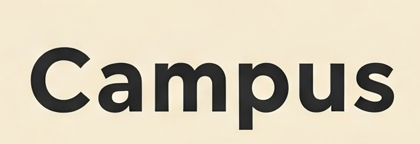In today’s competitive job market, sending out a resume can feel like tossing a pebble into the ocean. How do you ensure your pebble creates a ripple, a wave that catches the attention of recruiters and hiring managers? The answer lies in crafting not just any resume, but a good one – a strategic document that acts as your career’s most crucial first impression.
Think of your resume as your professional handshake in the digital world. It’s often the very first interaction a potential employer has with you. And just like a limp or overly aggressive handshake can leave a negative impression, a poorly constructed resume can send your application straight to the rejection pile, regardless of your actual skills and experience.
More Than Just a List: What Makes a Resume “Good”?
A good resume isn’t simply a chronological list of your past jobs. It’s a carefully curated narrative that showcases your value proposition and demonstrates why you are the ideal candidate for the specific role you’re targeting. Here’s why it’s so vital:
- Your First (and Often Only) Chance to Make an Impression: Recruiters often sift through hundreds of resumes for a single position. You have mere seconds to grab their attention and convince them you’re worth a closer look. A good resume is visually appealing, easy to scan, and immediately highlights your key qualifications.
- It’s Your Marketing Brochure: Your resume is essentially a marketing document that sells your skills and experience to potential employers. It needs to clearly articulate what you can offer them and how you can solve their problems. A good resume focuses on your achievements and quantifiable results, not just your responsibilities.
- It Gets You Past the Gatekeepers (ATS): Many companies use Applicant Tracking Systems (ATS) to filter through applications based on keywords and formatting. A good resume is ATS-friendly, using relevant keywords from the job description and adhering to standard formatting to ensure it’s not automatically discarded.
- It Sets the Stage for Your Interview: A well-crafted resume provides a solid foundation for your interview. It outlines your key accomplishments and allows the interviewer to ask more targeted and insightful questions. A good resume tells a compelling story that you can elaborate on during the interview.
- It Demonstrates Attention to Detail and Professionalism: A resume riddled with typos, grammatical errors, or inconsistent formatting screams a lack of attention to detail. A good resume is meticulously proofread and professionally presented, showcasing your commitment to quality.
- It Builds Confidence: Knowing you have a strong and effective resume can significantly boost your confidence during the job search. It empowers you to apply for roles you’re truly interested in and present yourself with conviction.
- It Saves You Time in the Long Run: While crafting a good resume takes effort upfront, it ultimately saves you time by increasing your chances of landing interviews for relevant roles. You’ll spend less time sending out generic applications and more time focusing on opportunities that align with your skills and career goals.
The Cost of a Bad Resume:
On the flip side, a poorly written resume can have significant negative consequences:
- Missed Opportunities: Your dream job might slip through your fingers simply because your resume didn’t effectively showcase your qualifications.
- Prolonged Job Search: A weak resume can lead to a longer and more frustrating job search, impacting your financial and emotional well-being.
- Negative First Impression: A sloppy or poorly written resume can leave a negative impression on potential employers, even if you eventually get an interview.
- Undervaluing Your Skills: A resume that doesn’t highlight your achievements and quantifiable results can lead employers to underestimate your capabilities.
